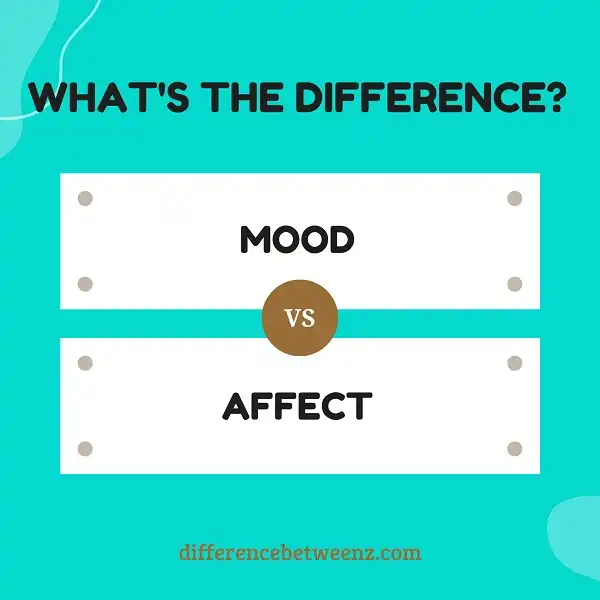Mood and affect are both important aspects of psychology, but they are not the same thing. Mood is a long-term state, while affect is a more immediate reaction. Mood can be thought of as the general atmosphere of a person’s emotions, while affect is what you feel in the moment. For example, you might be in a good mood most of the time, but if someone cuts you off in traffic, your immediate reaction might be anger or frustration.
What is Mood?
The mood is a feeling or a sentiment that is temporary and internal. It is not to be confused with emotions, which are much more complex. Moods are fleeting and can be compared to the weather- they come and go as they please. There are many different words that can describe moods, such as happy, content, jealous, angry, frustrated, etc. Everyone experiences moods differently and to varying degrees. Some people may only experience a handful of different moods, while others may feel like they Moodswing constantly.
Moods are mostly influenced by our thoughts and actions. For example, if someone is thinking about a loved one that they miss, they may start to feel sadder. However, if they then decided to call that person or go for a walk in nature, their mood would likely improve. Moods are an important part of our lives as they help to shape our day-to-day experiences. They provide color and contrast which make life more interesting. Next time you’re feeling down, try to take a moment to acknowledge your mood and see if there’s anything you can do to change it.
What is Affect?
It is generally accepted that affect is emotion or feeling, and that external manifestations of affect are facial expressions, vocal intonation, gesture, and body language. These manifestations provide important social and affective information that affect the course of social interaction. They may also serve as feedback to regulate the intensity or appropriateness of one’s own affect.
For example, if I am speaking with someone and see that they are frowning, I may tone down the affect in my voice so as not to appear too intense. In contrast, if someone appears happy and smiling, I may feel more comfortable expressing my own affect more fully. Ultimately, then, affect externalizations play an important role in social communication.
Difference between Mood and Affect
Mood and affect are two terms that are often used interchangeably, but they actually refer to two different concepts. Mood refers to a person’s internal emotional state, while affect refers to the external manifestations of that state. In other words, mood is how you feel inside, while affect is how that feeling is expressed through your behavior and appearance.
For example, if you are feeling sad, your mood would be negative and your affect might be withdrawn or tearful. While mood and affect are related, they are not the same thing. Mood is more internalized, while affect is more externalized. Mood can also be more stable over time, while affect can change more quickly in response to events.
Conclusion
Mood and affect are two important concepts to understand when it comes to understanding consumer behavior. However, they are often confused with one another. In this blog post, we’ve outlined the key differences between mood and affect so that you can apply this knowledge in your own marketing efforts.


